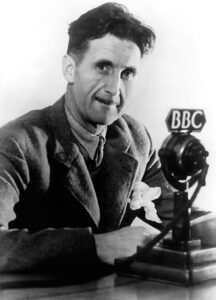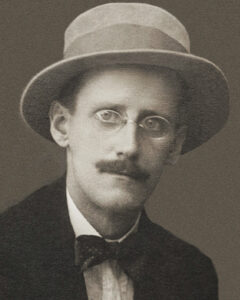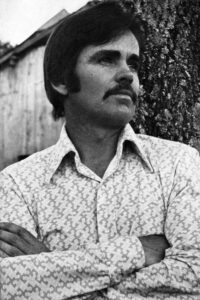“Most people who bother with the matter at all would admit that the English language is in a bad way, but it is generally assumed that we cannot by conscious action do anything about it.”
So George Orwell began his 1946 essay Politics and the English Language, which is still relevant today as both a guide and a warning. Reading it now (the whole thing is available online courtesy of the Orwell Foundation), it strikes me that the decline Orwell saw in the English language might be blamed on science as much as politics. Three of his “five specimens” of poor writing come from academia (one of them written by a prominent zoologist), and many of the specific writing habits he criticises are ones I see regularly in modern papers. One of our recent “NERD Club” discussion sessions was based on Orwell’s essay and related topics, as we looked for the conscious actions that might help us to write clearly and accurately.
It would be hard to deny that many scientific papers are difficult or even painful to read, let alone write. On this issue I find the perspectives of other kinds of writers fascinating. Scientists are tasked with conveying factual information through writing, just like essayists or journalists, and yet the expectations in terms of readability and fluency of language are entirely different. The requirements of poetry and prose are naturally different again, but no one expects a scientific paper to be literary or beautiful. Orwell sought rather to encourage honesty and intelligibility in writing, both essential traits for the communication of scientific results.

Orwell wasn’t the first writer to take issue with the standard of written English in the sciences. A century ago, in the “Oxen of the Sun” chapter of Ulysses (which is in the public domain and available online), James Joyce tore through 32 different forms of English in a whirlwind of parody. Included is a paragraph that satirises scientific English, starting with the words “It had better be stated here and now at the outset…” The exaggerated version of scientific writing that Joyce does here has many of the quirks that Orwell criticised, and indeed is recognisably similar to how a lot of papers are still written today. These quirks, all of which work against the clarity of the writing, include absurdly complex language (“pass through the ordinary channel with pluterperfect imperturbability such multifarious aliments as cancrenous females emaciated by parturition”), baffling combinations of English and Latin (“nisus formativus of the nemasperm on the one hand and on the other a happily chosen position, succubitus felix”), and a general structure of long and complicated sentences full of commas, brackets, and dashes.
Joyce’s parody of scientific writing was informed by reading it: Historians have published a list of Joyce’s loans from the Shakespeare and Co. library in Paris, including a number of scientific works such as books by the biologist JBS Haldane. Incidentally, don’t let the “Oxen” chapter put you off the book: the rest of Ulysses is a lot more comprehensible!

As I’m writing up the papers which will become my PhD thesis, I’ve found the examples of Orwell and Joyce helpful in understanding what makes scientific writing clear or unclear. After reading Orwell’s argument about overused, dying metaphors such as “hotbed” and “toe the line”, I found myself removing the phrase “hotbeds of evolution” from a manuscript. As he said, I was using this phrase purely because I’d read it in other papers, not because I thought it was a good metaphor to express my own thoughts. To be quite honest, outside of this common metaphor I wasn’t even sure what a hotbed actually was.
As well as Joyce and Orwell, I sometimes refer to a much more recent piece on the Nature website called “Novelist Cormac McCarthy’s tips on how to write a great science paper”. A lot of McCarthy’s advice in this article can be summarised as “write like a human”, something I try to do as I write manuscripts. Orwell made a similar point about certain kinds of writing making the writer operate like a “machine”, and there is undoubtedly something mechanistic about a lot of scientific writing. McCarthy also has helpful advice on punctuation, such as using a comma to denote a pause in speaking. This you might expect from a writer who uses punctuation so carefully and minimally in his novels, as if forcing every comma to work hard to earn its place on the page.

It is really, genuinely important that scientific writing is honest and informative, so that science itself can be. Orwell warned that imprecise political writing is used “to make lies sound truthful and murder respectable, and to give an appearance of solidity to pure wind”. Political actions and motives are often justified with reference to science, so scientific fields have some responsibility for how their work permeates society. Orwell showed that abstract concepts are the most difficult things to communicate originally and thoughtfully, so we might expect the more abstract reaches of ecology may be particularly vulnerable to political abuse. One example of the kinds of questions we should ask: what is the ultimate effect of subsuming parts of ecology into the language of economics? What does that mean for our understanding of the natural world and how we seek to interact with it?
Orwell concludes his essay with six rules for clear and factual English. Our discussion agreed that these are helpful, particularly the last rule which retroactively turns all six into flexible guidelines rather than commandments. I’d recommend the full essay to any scientist, as well as the McCarthy piece. Orwell’s rules are below, along with other writing resources that members of our group found helpful.
Orwell’s Six Rules
i. Never use a metaphor, simile or other figure of speech which you are used to seeing in print.
ii. Never use a long word where a short one will do.
iii. If it is possible to cut a word out, always cut it out.
iv. Never use the passive where you can use the active.
v. Never use a foreign phrase, a scientific word or a jargon word if you can think of an everyday English equivalent.
vi. Break any of these rules sooner than say anything outright barbarous.
Other Resources
Linguistics, Style and Writing in the 21st Century – a lecture by Steven Pinker (recommended by Cian, who has also provided notes)
Writing in the Sciences – a free online course offered by Stanford University (recommended by Jenny and Andrew)
Writing in English – a 30-minute tutorial from SpringerNature aimed at non-native English speakers (recommended by Katrin)
More EcoEvo Posts on Communication, Language, and Politics
Home and Away: Would a Rosella by any other name smell as sweet? – Jacinta Kong, 2019
What’s in a name? – Fionn Ó Marcaigh, 2018
Closing the Gap Between Diversity Talk and Diversity Actions – Annabel Smith, 2018
Top 10 Minor Assignment Mistakes that Grind my Gears – Maureen Williams, 2016
Presentation tips: how to create and deliver an effective talk – Seán Kelly, 2014

